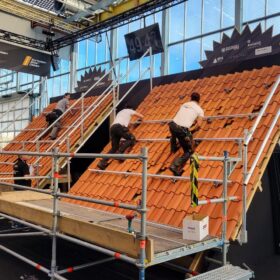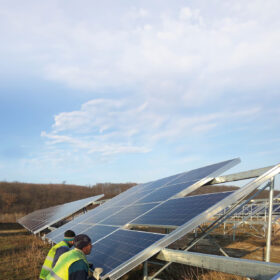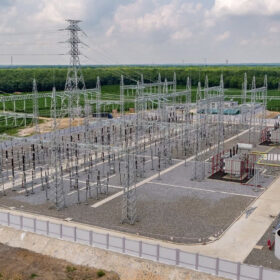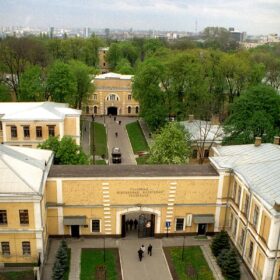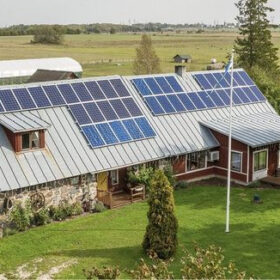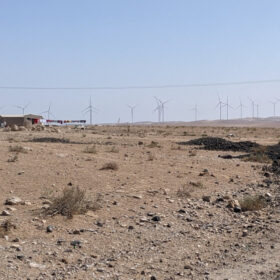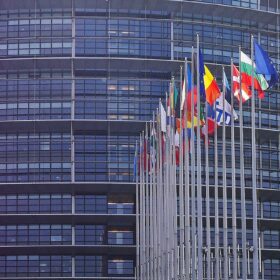Key takeaways from Solar Solutions Amsterdam 2025
The Solar Solutions Amsterdam 2025 trade show highlighted the shift in Europe toward smarter, scalable energy systems, showcasing innovations in residential and commercial solar technology as demand for integrated, flexible solutions continues to grow.
Solar a beacon of hope as Ukrainians yearn for peace
Solar energy has been essential for survival in Ukraine during nearly three years of war since the Russian invasion in 2022. As citizens hope for peace, PV will be instrumental in supporting post-war recovery, whenever it comes.
A tumultuous year for solar and batteries
In five key trends, pv magazine looks back over a year that saw PV module prices fall lower than many thought possible, while demand was restrained by grid congestion, among other challenges. Energy storage has had a strong year and geopolitics is seeing solar and battery manufacturing enter new regions as competition drives technical innovation.
Bringing clean African electrons to Europe
A raft of ambitious interconnection projects has been announced to bring African electrons to European shores. While there are financial and supply chain challenges to overcome, the renewables potential on offer across North Africa is exciting investors.
Ready for anything
Worldwide, solar has an important part to play in preventing climate breakdown and reducing the frequency of extreme weather events. But the regions most vulnerable to these conditions face their own challenges in building resilient energy systems. The right approach to renewable energy development can reap multiple benefits in these regions, as pv magazine heard when it spoke to Kamal Kishore, Special Representative for the United Nations Office for Disaster Risk Reduction (UNDRR).
Ukraine receives solar panels to power hospitals
Over 5,800 solar panels manufactured by Italy’s Enel have been delivered to Ukraine to help power healthcare facilties.
Solar leading Baltic states to energy security
In recent years, the Baltic countries have experienced a solar generation boom as the region seeks to kill two birds with one stone. These nations aim to break away from years-long energy dependence on Russia amid growing security concerns while also continuing to prioritize the green energy transition.
Jordanians eager to embrace renewable energy
According to a new survey, 91% of respondents support the expansion of renewable energy sources in Jordan. Strategic interests of geopolitical actors, in particular the US, are seen as hindering the country’s energy transition, however.
Green Deal will remain after EU elections, just with different marketing, says analyst
In an interview with pv magazine, Linda Kalcher, executive director at European think tank Strategic Perspectives, described the possible consequences of the recent EU elections on the continent’s energy landscape. “Investors and businesses need security and predictability to thrive,” she said. “If cleantech is not manufactured here, the jobs and investments go to the US and China and a deindustrialisation looms. This cannot be in the interest of any politician,”
PV installation triggers border dispute between Chile and Argentina
Chilean President Gabriel Boric complained that the solar array installed on a military base in Argentine Patagonia were located three meters inside Chilean territory. “They must remove those solar panels as soon as possible or we are going to do it,” he warned. The Argentine government recognized the error.
